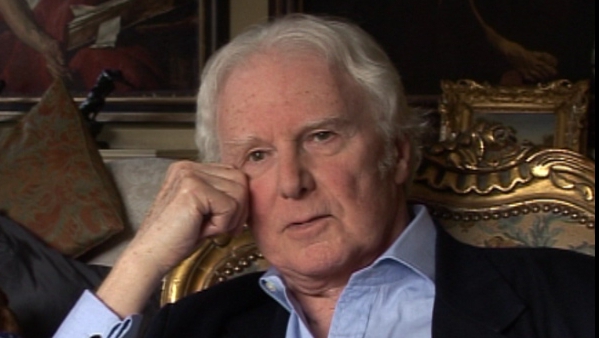NEXT STORY

AIDS has changed everything
RELATED STORIES

NEXT STORY

AIDS has changed everything
RELATED STORIES


|
Views | Duration | |
|---|---|---|---|
| 81. Casual sex on the Thames river towpath | 351 | 06:54 | |
| 82. Performing homosexual acts in public places | 327 | 03:46 | |
| 83. AIDS has changed everything | 237 | 06:13 | |
| 84. A religious upbringing and my longing to be a priest | 227 | 02:51 | |
| 85. The need for chastity in celibacy | 229 | 05:54 | |
| 86. Becoming the art critic at the Evening Standard | 212 | 04:03 | |
| 87. The pull of journalism | 207 | 03:53 | |
| 88. Writing destructive art reviews | 295 | 06:24 | |
| 89. Artists are my targets | 245 | 02:49 | |
| 90. To be an art critic is to take a lonely path | 233 | 02:45 |

I think there must have been an enormous number of homosexuals who played the other game, which was to get married and be miserable.
There are people of my generation who say that part of the fun was that it was against the law, that it was so dangerous, that the constant sense of menace added something to it. I’m not sure about that, because your life could be completely destroyed. There were a number of notorious cases in the 1950s when the persecution was at its height, when your life could be completely wrecked. You’d never get another decent job. You were an outcast, and was that a risk worth taking because the frisson of menace added so much to it? No, it wasn’t, but there is a sort of reasonable assumption that if you meet a stranger in circumstances where there are a hundred people stretched along the river, who are all looking for the same thing, it’s sort of unlikely that anything will go wrong.
You could have sex in all sorts of odd places, and I think, at that time, if you… at that time, it was, in a way, easy, because very few people knew about it. Now everybody knows about everything, and I mean if you were standing in a bus queue and you caught the eye of somebody walking towards you and then you turned round to see if he was looking back, and you left the bus queue to go and join him, no one would think anything of it. They wouldn’t recognise the manoeuvre. Nowadays, I think everybody will recognise the manoeuvre. So that privacy lay in ignorance. And lots of people would never believe that you would go into the public lavatories in Harrods and have a quick fuck with somebody from behind the counter. And I’m sure it doesn’t happen now. But then, it did happen. And Harrods was a place where you could, if you felt like having a fuck at three o’clock in the afternoon... pretty well be sure of getting one.
It doesn’t happen in museums and galleries anymore. But wandering around the V&A on a wet Sunday afternoon was a sure way of finding someone to go to bed with.
Born in England, Brian Sewell (1931-2015) was considered to be one of Britain’s most prominent and outspoken art critics. He was educated at the Courtauld Institute of Art and subsequently became an art critic for the London Evening Standard; he received numerous awards for his work in journalism. Sewell also presented several television documentaries, including an arts travelogue called The Naked Pilgrim in 2003. He talked candidly about the prejudice he endured because of his sexuality.
Title: Performing homosexual acts in public places
Listeners: Christopher Sykes
Christopher Sykes is an independent documentary producer who has made a number of films about science and scientists for BBC TV, Channel Four, and PBS.
Tags: Harrods, Victoria and Albert Museum, V&A
Duration: 3 minutes, 46 seconds
Date story recorded: April 2013
Date story went live: 04 July 2013